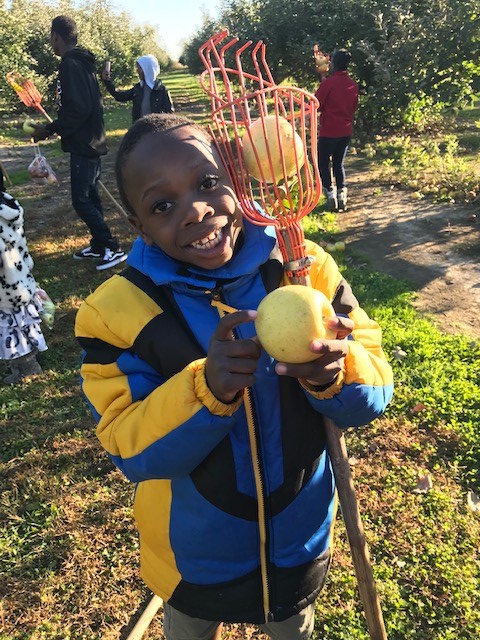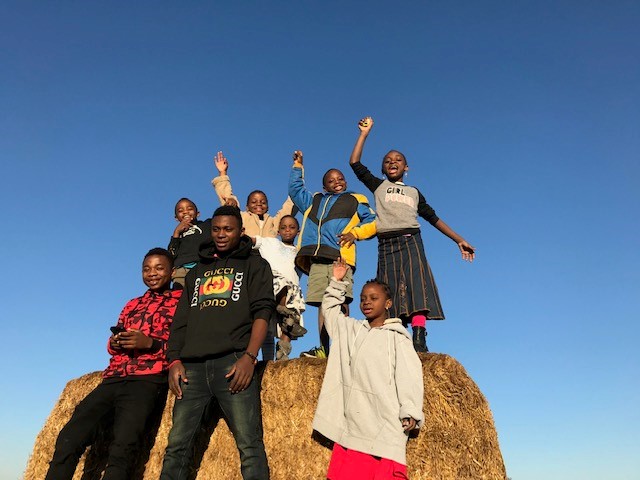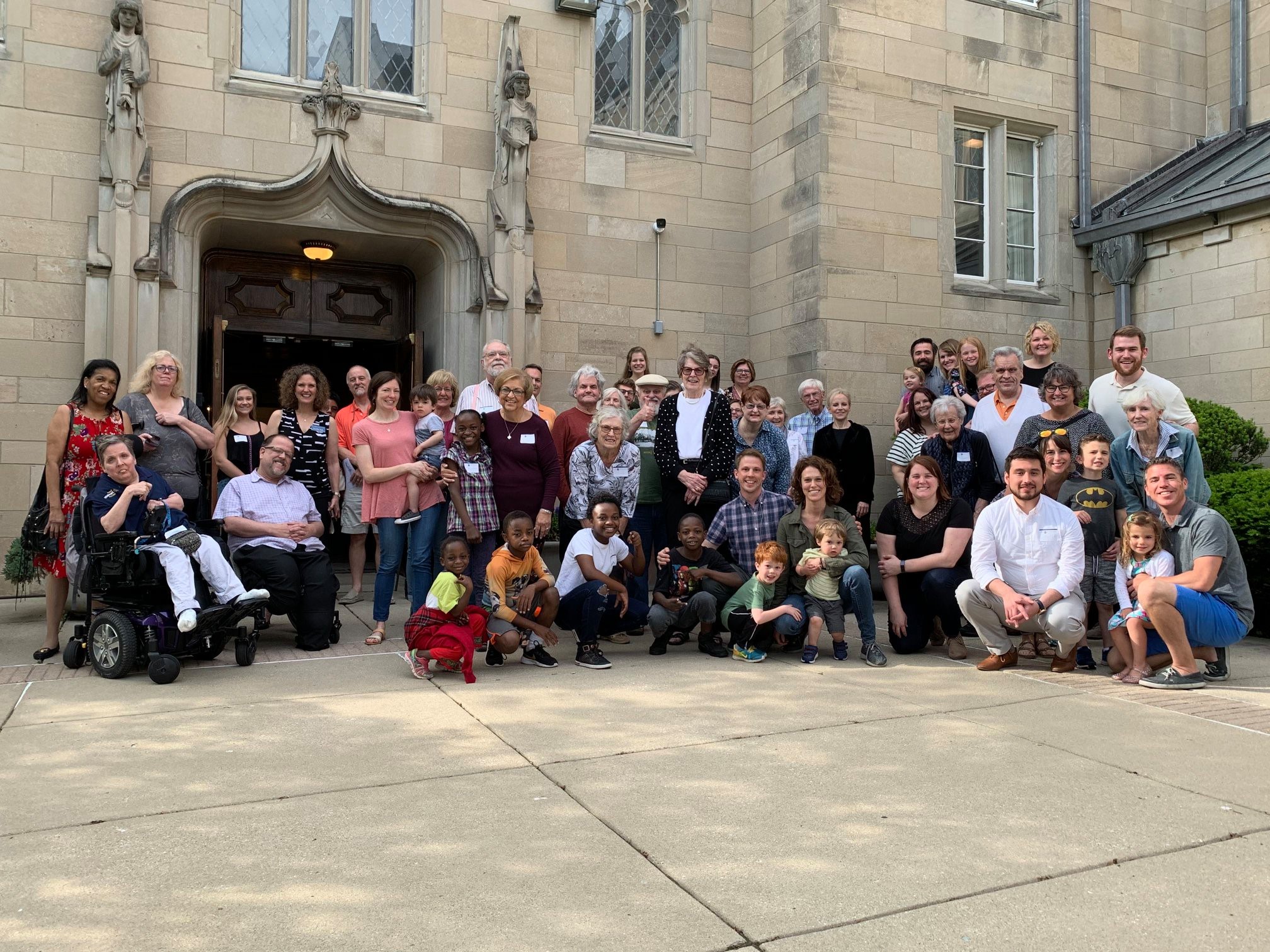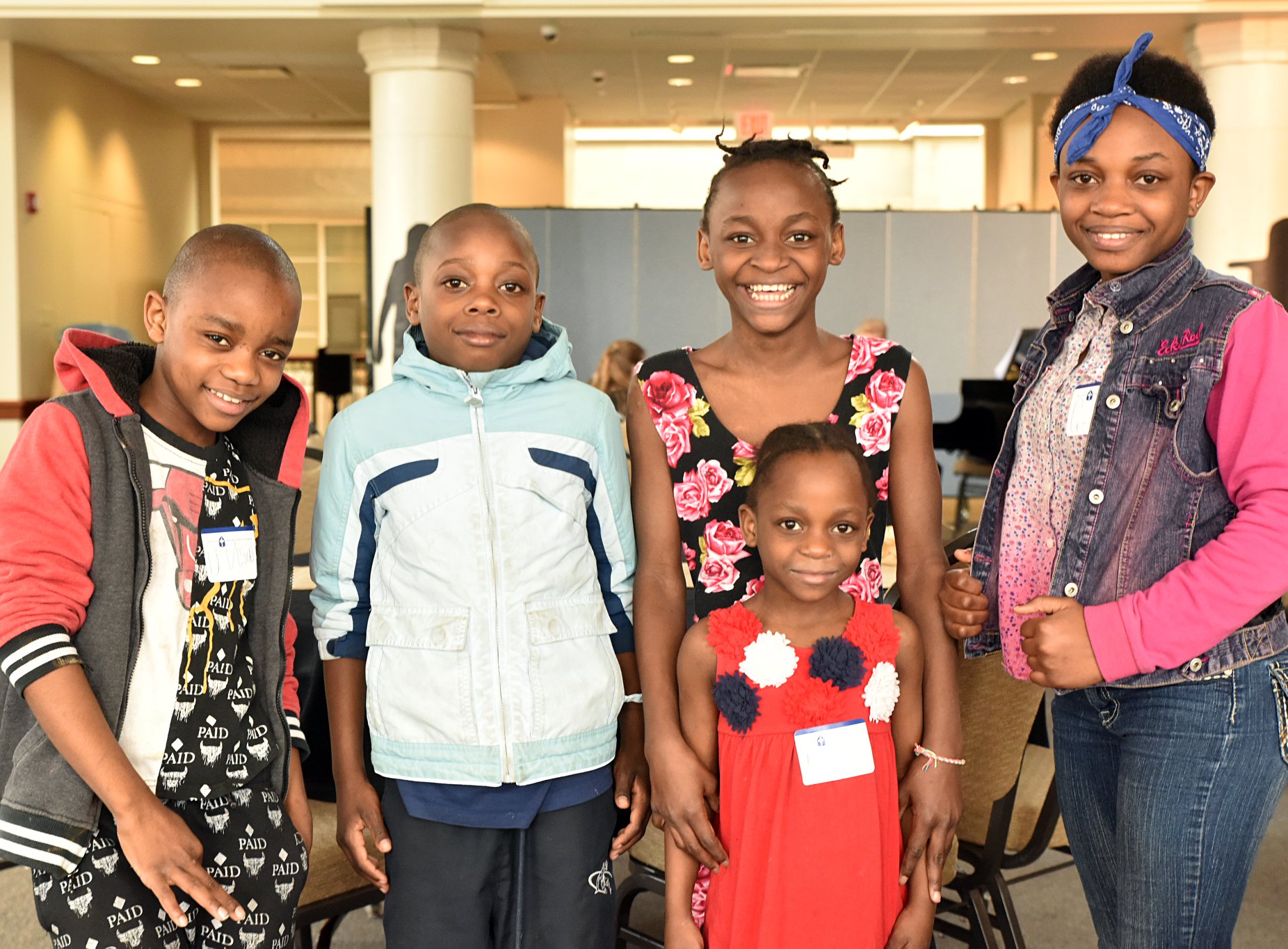In recent weeks, we have shared stories about how COVID-19 has affected not only the journey of refugees but the ways in which those who provide support have had to pivot to address unforeseen issues brought about by the pandemic. Before COVID hit, the Refugee Ministry Team at Second Presbyterian Church in Indianapolis was ready to close their work with a refugee family who were by all accounts thriving. The abrupt lockdown and its fallout left the Refugee Ministry Team scrambling to provide support no one could have predicted would be necessary.
As Reverend Christopher Palmer, Lake Fellow in Parish Ministry shared, “The pastors, staff, and congregation of Second Presbyterian Church are so grateful for the leadership of those who contributed to writing this blog post. We have learned deeply about Christ’s work of love and hospitality through our Refugee Ministry Team’s ongoing friendship with the Sikabwe family. They have shown grace in their flexibility and navigation of the current COVID crisis, and we are better because of them. We celebrate the ministry our team has done, and all that is to come!”
…….
A month before the Indiana governor announced in March that the state was under a “stay-at-home” order in response to the COVID-19 virus outbreak, the Refugee Ministry Team at Second Presbyterian in Indianapolis had decided that it was time to end its organized work with the twelve-member Congolese family it had welcomed on January 31, 2018. By February 2020, the family seemed to be managing with little on-going support from the ministry team. The parents and two older sons who arrived with them were employed. The family was living in its own house, purchased by another son who had come to Indianapolis sometime before 2018. The family had established numerous connections with the growing Congolese community in Indianapolis.
It seemed time for the team to step back and limit its work to assistance with school assignments that some members were providing for the school-age children. That was work they could continue without the formal structure of the committee and addressed a need for support that the family could not provide.
But then COVID-19 happened. The school district was on spring break when the governor’s lockdown order was issued. It was decided schools would remain closed for the rest of the school year, which meant the children would no longer receive the two meals a day they received there. As the district hastily shifted to on-line instruction—and public libraries, which some team members had used for tutoring sites, were closed—the Team learned there was no computer or internet in the house. Finally, the parents were laid-off from their jobs at a major downtown hotel.
Members of the Ministry Team continued to focus their attention on the children’s needs and on filling gaps in the family’s ability to access services because of limited English and their work schedules. One member helped the family sign up for internet access. Others picked up computers that had been donated to the school district and were available to families who did not have personal computers at home. Some members went twice a week to pick-up food provided by the school district at a central distribution site.
However, the Team did not continue its tutoring activities because of members’ own health concerns, the level of activity in the household with all of the children at home, the unpredictable presence of members of the extended family, and because of Team members’ lack of experience with on-line learning. At the end of the school term, the member of the Team who checked the children’s school records discovered that several of them seemed to have turned in few of their assignments.
Since the official end of the school year in late May, members of the Ministry Team have registered the children for the new school year, consulted with school counselors and social workers, and enrolled the children in on-line summer school courses. In addition, the Team has agreed to provide tuition scholarships for the three high school students and recruited some new members to serve as tutors for them.
Was the Ministry Team premature in making the judgment in February that the family was ready to cope on its own, or were the problems that arose in March surrounding COVID-19 simply issues that couldn’t have been anticipated? How could the Team have avoided its own fatigue after two and a half years with this ministry? Did this fatigue contribute to a difficulty in determining new ways to help in changed circumstances?
At this point, active Team members don’t know the answers to these questions. We can only trust that we have expressed and demonstrated Christian love and concern that may have helped this interesting and complex and brave family find its way forward in a strange, new land.
It is human to wonder if the Christian service we provide others is hitting the mark—or if we’ve missed it completely. An outside perspective often humbles us even as it praises us. Church World Service shared this about Second Presbyterian’s Refugee Ministry Team’s in “Stories of Faith Partner Participation During COVID-19”: Second Presbyterian Church in Indianapolis continues to go above and beyond for the family they have been matched with since 2018. They are amazing! They have been doing case management work rather than just general community support. They helped the kids get situated with E-learning by applying for free internet from Comcast, picking up laptops from the schools, and contacting teachers about the E-learning process. They have also picked up and delivered meals for the family.



